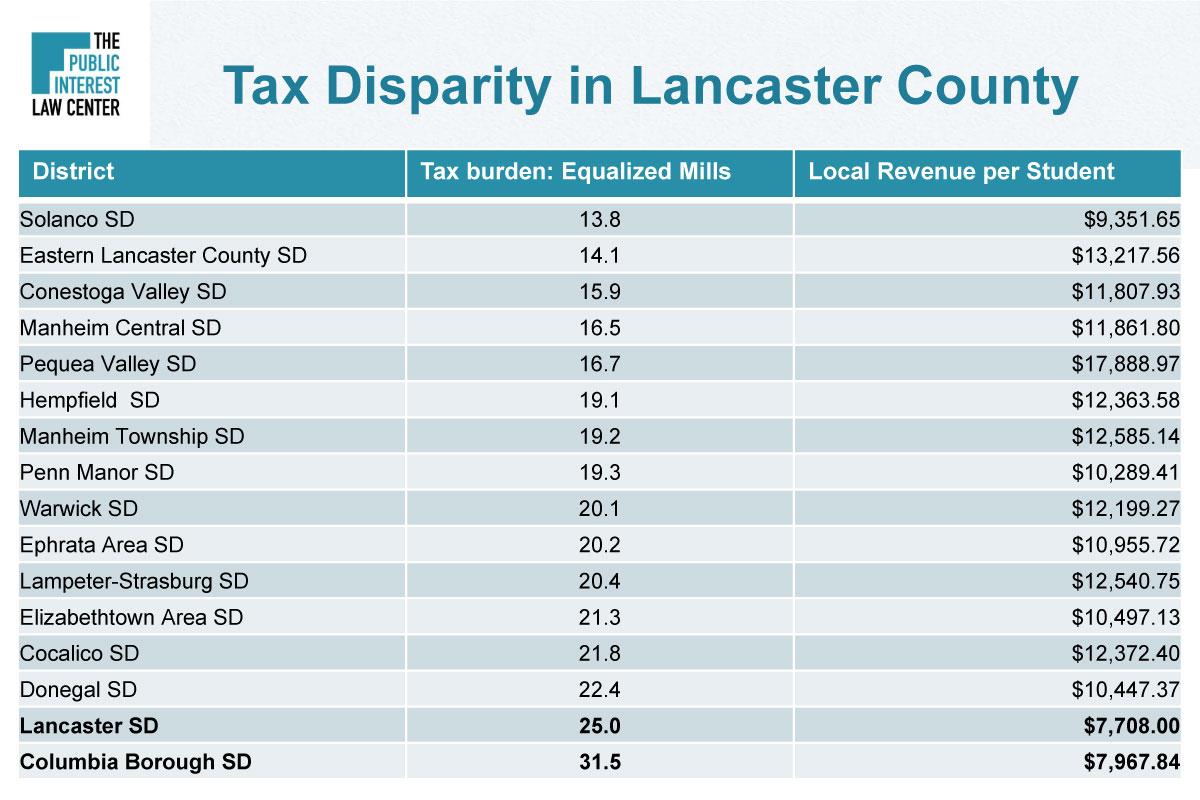
An attorney representing the School District of Lancaster in its funding lawsuit against the Pennsylvania Department of Education says the Commonwealth is failing its children by not having a plan to fully fund its schools.
Dan Urevick-Ackelsberg, of the nonprofit Public Interest Law Center in Philadelphia, on Feb. 18 updated the school board on Pennsylvania’s current system of funding schools and the rationale for the district’s case. The trial is scheduled to begin later in 2020.
“We need the public to be outraged and engaged,” he said, because even assuming success in court, “we don’t want it to take years to make a difference.”
Ackelsberg says the long-term problem facing education in Pennsylvania is a combination of five factors: no legislative goal to fully fund schools, relatively low state funding compared to the rest of the U.S., inadequate use of the basic education funding formula, unfair property tax burdens and unacceptable outcomes for children.
“We need to dispel the myth that people in the suburbs and other affluent areas have good schools because they are willing to pay for it,” Acklesburg told the board. In reality, more affluent communities raise more revenue per student than in low-income districts, he said.
For example, SDoL and Columbia Borough, the two districts with the highest rates of economically disadvantaged students in Lancaster County, raise less than $8,000 per student in local tax revenue. Yet they have the highest tax rates in the county.
By comparison, Hempfield and Manheim Township, more affluent suburban schools, raise more than $12,000 per student with tax rates nearly 25 percent less than SDoL.

“The schools that pay the highest tax rates are the poorest school districts,” Acklesburg said. “When the state does not do its part, and schools are left to fend for themselves, schools are forced to raise taxes, but they still cannot raise enough revenue.”
A 2007 study commissioned by the state Legislature found that it would take an additional $4.4 billion in education funding to meet state proficiency standards.
Ackelsberg calls the bipartisan education funding formula “good,” but says its weakness is that it is relative—it does not consider how much funding is really needed.
The plaintiffs aim to prove it takes more state funding to meet the Pennsylvania constitution’s standard for a “thorough and efficient system of public education” and that the disparities in funding and revenue capacity do not provide for equal protection among Commonwealth students.
SDoL is joined in the lawsuit by three other urban districts, William Penn, Wilkes-Barre Area and Greater Johnstown, two rural districts, Panther Valley and Shenandoah Valley, the PA Association of Rural and Small Schools, the Pennsylvania NAACP, and parents.
